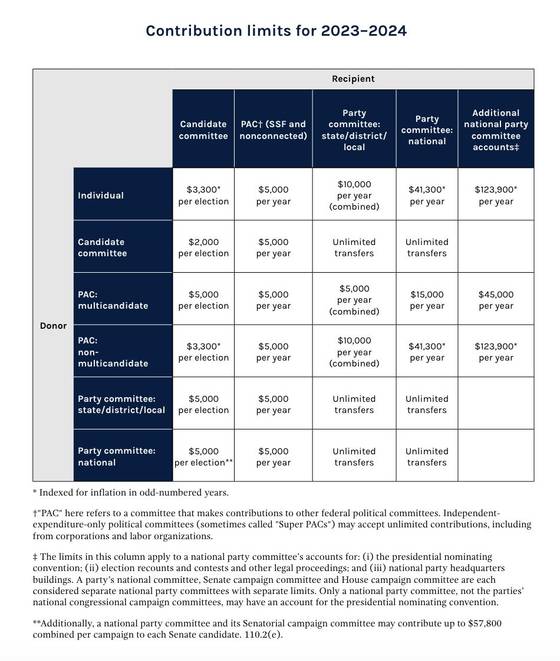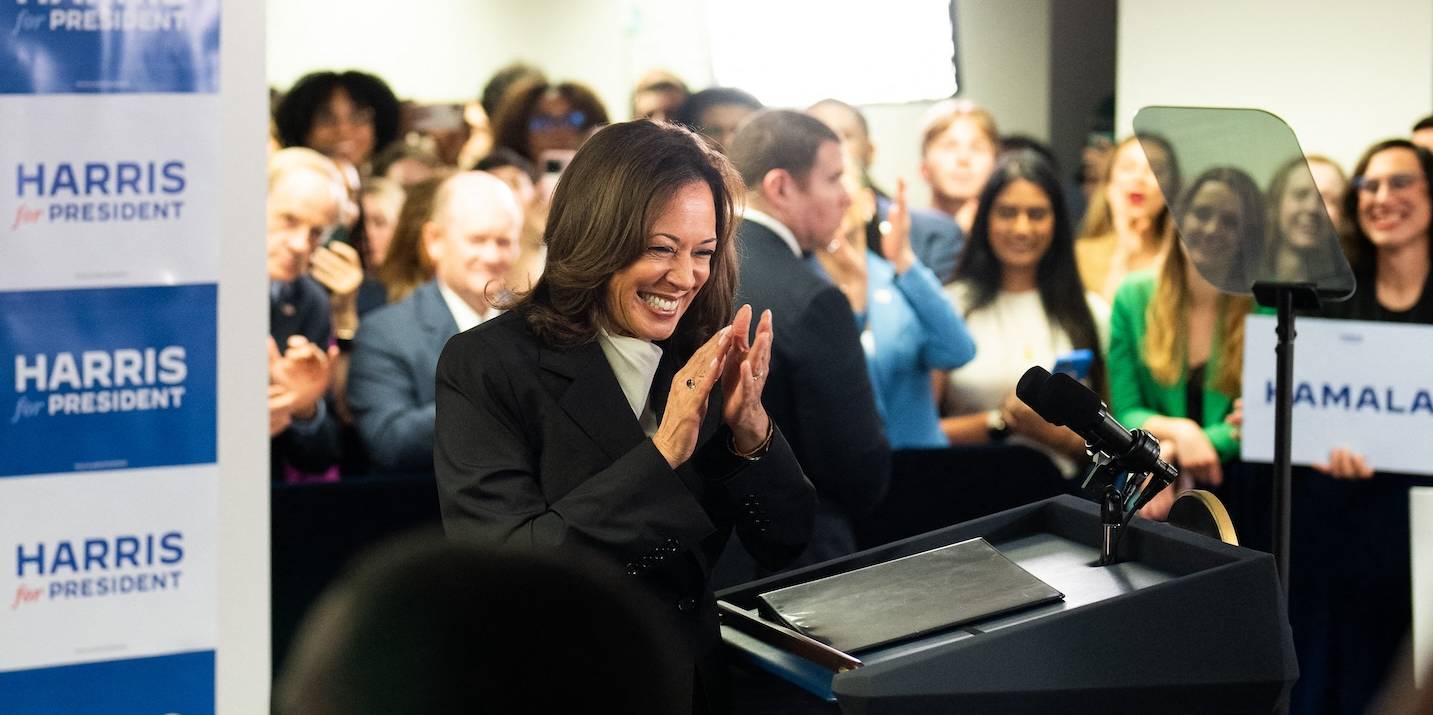In 24 hours, she raised $100 million. In a week, she raised $200 million. And in a month, $300 million. Kamala Harris, who is expected to be officially nominated as the Democratic candidate for the November presidential election in the United States of America, managed to win over financiers after being elected following Joe Biden’s withdrawal.
It is no coincidence that financiers are rolling out the red carpet for the candidates. And just as they pulled the carpet out for Biden, they rolled it out for Harris.
[Já saiu o primeiro episódio de “Um rei na boca do Inferno”, o novo podcast Plus do Observador que conta a história de como os nazis tinham um plano para raptar em Portugal, em julho de 1940, o rei inglês que abdicou do trono por amor]
The debate between Trump and Biden on June 27 (now June 28 in Portugal), which demonstrated a poor performance by the current president, was the trigger that was missing for the final pressure on Biden.
Lots of personal attacks and even a discussion about golf. Trump debate leaves Democrats worried about Biden’s ability
This pressure soon solidified with several Democrats speaking out, with a crucial position from Nancy Pelosi and some anonymous messages from Barack Obama. It was the lost blow to an action that had already led some of the largest Democratic funders to freeze donations. Without the support of his peers and without more money, Biden’s candidacy was doomed to failure. The announcement of the withdrawal came on July 21. “It is in the interest of my party and the country that I resign,” he declared in a message on the X network.
Joe Biden is ousted and Kamala Harris is endorsed. But it is not certain that the vice president can beat Trump, or even that she is the Democratic candidate.
Vincent Pons, a professor at Harvard Business School, has no doubt that “top financiers pressured Joe Biden to drop out of the race, threatening to stop funding the Democratic presidential campaign if Biden remained on the ticket.” However, the Observer finds it difficult to determine whether this pressure from big financiers was the central factor in Biden’s decision, as he was also facing increasing pressure from many other actors, including major newspapers, such as the New York Times, and several members of the Democratic Party itself.
Major US newspapers are calling for Biden to drop out of the race. What will it take to make this happen?
What are Super PACs?
Money donated directly to campaigns or parties is limited (in individual terms), but there are no limits on donations to so-called Super PACs, independent political action committees created so that funders can deliver donations and which promote, independently of the campaigns, promotional actions and large advertising campaigns. And the spending of these Super PACs is also unlimited, as there are none for the candidates’ own resources. Unlimited spending comes with one restriction: the impossibility of using public financing that is available, but with many limitations and, therefore, practically unused.

Source: Federal Election Commission (USA)
Therefore, large amounts of funds pass through Super PACs. Since 2010, following a court ruling in defence of freedom of expression, it has also been possible for companies (individuals have been able to do so since 1976) to give whatever they want to these structures for political activities and campaigns on a given topic, even if they are not authorised to work directly with party campaigns and candidates.
In other words, as Bruno Wilhelm Speck, a professor at the University of São Paulo, explains to the observer in the study on Financing of political parties and electoral campaigns in the United States, “With the January 2010 Citizens United vs. Democrats ruling, the Federal Election Commission granted corporations the right to contribute unlimited funds to advertising campaigns during the election process as well, provided they did not directly campaign for specific candidates and did not transfer funds directly to campaign coffers. Limitations on contributions to parties and candidates remain in effect.”
With no limits on money and spending, these entities end up wielding great power. It was one of these Super PACs, Future Forward, that froze the money it had received until early July until Biden withdrew, as the New York Times reported at the time. In January, this Super PAC had set aside, CNN reported, $250 million for television and digital advertising in highly contested states. Now, in more recent information, from July 25, from the Washington Post, it is indicated that in three weeks this entity intends to spend $50 million in six states with advertising to promote the Kamala Harris campaign before the Democratic convention that begins on August 19. American Bridge 21st Century, another Super PAC, will also relaunch its advertising campaign in Michigan this week.
This comes after, according to AdImpact data, support for Biden had reserved just over $300 million in advertising until the date of his withdrawal, more than double what had been done in support of Trump.
Election campaigns in the United States are expensive. Very expensive. In the last presidential election cycle, in 2020, in which Biden emerged victorious and Trump defeated, the cost reached 6 billion dollars (around 5.5 billion euros), according to data from Open Secrets, more than double that of the previous cycle.
In this cycle, the value can be surpassed. In 2020, the pandemic sent huge sums of funding to television, in the form of very expensive advertisements, but also to social media.
Conflicts of interest with financing?
The issue is not new in this campaign. The millions thrown into elections by businessmen, companies and interest groups always leave doubts in the air. Will the power of these groups in elections determine decisions in their favour later on?
“The role of money in politics [nos EUA] “It’s very big,” Bruno Wilhelm Speck told the Observer.. For this professor, the influence of these big financiers on future policies is an important and even populist debate. Do they influence political content? Wilhelm Speck believes that these big financiers above all guarantee access to politicians.
Reid Hoffman, co-founder of LinkedIn and one of the Democrats’ biggest funders, was one of the first to support Kamala Harris. His donations to the Super PAC Future Forward have already surpassed 7 million this year and as soon as Harris moved forward, the billionaire announced the reinforcement of support for the campaign, declaring, according to CNN, that he hopes Harris will be the next president of the United States. But this support already comes with a demand: to fire the chair of the Federal Trade Commission, Lina Khan, who has been the visible face of the lawsuits against big tech companies. “I hope you take it down.” [do cargo]”he said. Lina Khan was appointed by the Biden Administration and has even been praised by Republican vice presidential candidate JD Vance.
“The amounts spent on campaigns in the United States often raise legitimate concerns that the role of money in American politics could give too much power to private financiers, with the risk of influencing politicians in favour of their interests,” admits Vincent Pons, adding that, however, in this case “private financiers, who pressured Biden to leave office, were aligned with the interests of Democratic voters, many of whom had hoped to be able to vote for a different candidate.”
The role of small financiers
It is true that the role of big financiers is crucial for a campaign in the United States, but Bruno Wilhelm Speck also highlights the role of small ones. He recalls the statements of the Kamala Harris campaign both on the money raised in a few days and also on the number of small donations and those who made them for the first time.
According Kamala Harris Campaignthe campaign raised more than $300 million in July alone, compared to about $140 million raised by Trump, who also saw a surge in funding that month following the attack, according to AP. And these amounts are not total funds.
Only @KamalaHQ raised $310 million last month.
?????????Of 2/3 of new donors
????????? We increased our recurring donor base by 50%
???? We multiplied our Gen Z donor base by 10
????????We had the best month of grassroots fundraising in the history of politics
—Rob Flaherty (@Rob_Flaherty) August 2, 2024
The Harris campaign specifies that two-thirds of July’s donations were made by people who were contributing for the first time in the current election cycle. In total, three million people, who made 4.2 million contributions, gave money to the campaign. And of that total, two million did so for the first time. In addition, 94% of July’s donations were deposits of less than $200. Bruno Wilhelm Speck explains the importance of this announcement. The campaign wants to highlight that support is rooted in the population and that popular support is significant for a candidate who has just entered the race.
Source: Observadora
